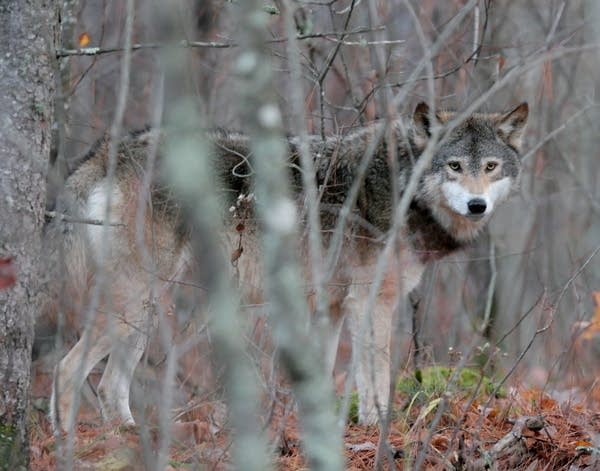Court rejects bid to block Minn. wolf hunt
Go Deeper.
Create an account or log in to save stories.
Like this?
Thanks for liking this story! We have added it to a list of your favorite stories.

Advocates of wolf hunting and trapping in Minnesota are applauding a decision by the state Court of Appeals that allows the hunt to proceed next month.
State Sen. Bill Ingebrigtsen, R-Alexandria, chair of the Senate environment committee, said protection of the wolf under the Endangered Species Act boosted its population enough to thrive, even with a public hunting and trapping season.
"It really does work and it has worked bringing back the gray wolf, and now all the experts are saying they can thinned down a bit, they can be managed and taken down, so that's the intention," Ingebrigtsen said.
The court rejected the arguments made by two conservation groups that the Minnesota Department of Natural Resources did not provide the proper opportunity for public comment on its hunt. The Center for Biological Diversity and Howling for Wolves argued the online survey was no substitute for standard methods of gathering public input and asked the court to temporarily stop the hunt while it considered their case.
Turn Up Your Support
MPR News helps you turn down the noise and build shared understanding. Turn up your support for this public resource and keep trusted journalism accessible to all.
Chief Judge Matthew Johnson said in an order Wednesday that it was the Legislature, not the DNR, that decided when the season should open.
Wolves in the Great Lakes region were removed from the Endangered Species List in Jan. 2012, after a legal battle of nearly ten years.
Minnesota had already developed a plan to manage wolves, which included a five-year waiting period before a hunt would be allowed. But the legal roadblocks to delisting prompted the Minnesota Legislature in 2011 to remove the waiting period. Then last spring, legislators specified that the hunt should begin each year on the opening day of the rifle deer season.
In reference to the short time available to plan the hunt, the DNR announced it would skip the usual steps of holding public meetings and gathering input, and instead would use an online survey to gauge public opinion.
The court ruled the groups had not shown they would suffer harm from the DNR's rules, because it was the legislature that authorized wolf hunting and trapping, and determined the season's open date, which will be Nov. 3.
The Center for Biological Diversity's attorney, Collette Adkins Giese, said she is very disappointed by the ruling.
"Four hundred wolves will be shot or suffer and die in traps," she said. "The deaths of those wolves, it's something that weighs heavy on my heart. These are beautiful, intelligent, social creatures, and they deserve better than this."
Adkins Giese said she doesn't understand the court's reasoning.
"The harm that we're going to suffer comes from the killing of wolves, and that only happens because the DNR issued the rules that are at issue in this case," Adkins Giese said. "The Court of Appeals reasons that the harm flows from the statute that authorized the DNR to open this hunt. But that statute was an authorization. It wasn't a mandate. And I do believe the harm flows from the rule."
There is disagreement over whether the legislature merely authorized the DNR to hold a hunt this year or directed it to do so.
One person who should know is Ingebrigtsen, who chaired the Senate committee and held hearings on the hunt. He said legislators did not want to wait another year.
"The full intention of the legislation was, at least to my eyes, and we had a lot of discussion, was that it was this season," Ingebrigtsen said.
That set up the short time period for the DNR to settle questions about zones and permit areas, requirements for licenses, tagging and registration, bag limits, and target harvest numbers. Whether the DNR followed the law in gathering public opinion to accomplish all that remains a question before the court, which is unlikely to rule until well into next year.
DNR spokesman Chris Niskanen said Wednesday's ruling resolves any uncertainty about the upcoming season, which he said will not harm the overall health of the state's 3,000 wolves.
"The DNR's been taking a very conservative approach to the state's first wolf season by establishing that total target harvest of 400 wolves," Niskanen said. "The season will not have any significant impact on the population."
The Center for Biological Diversity said it will consider appealing Wednesday's appeals court ruling to the state Supreme Court.
---
• Follow Stephanie Hemphill on Twitter: http://www.twitter.com/mpr_hemphill




